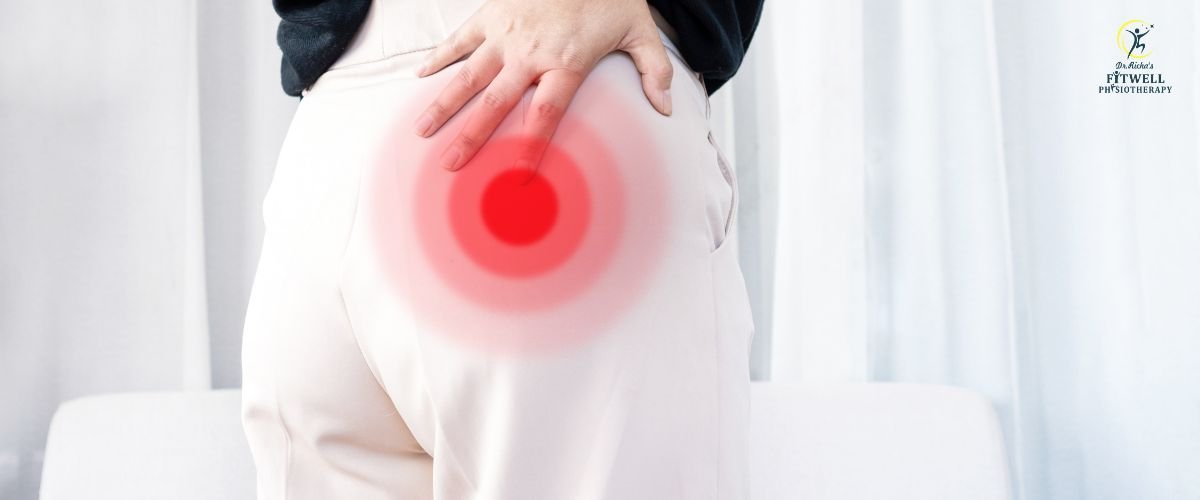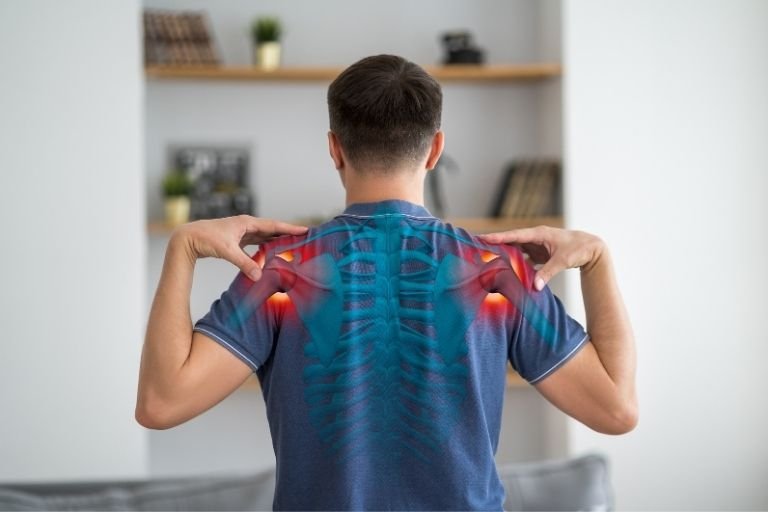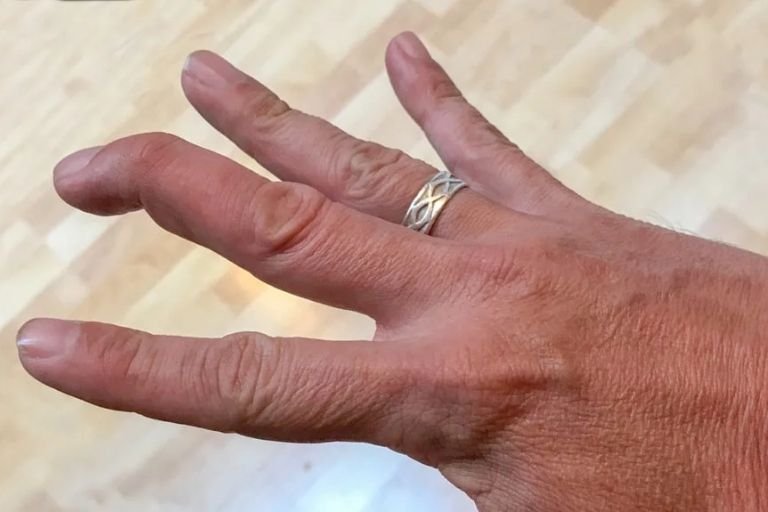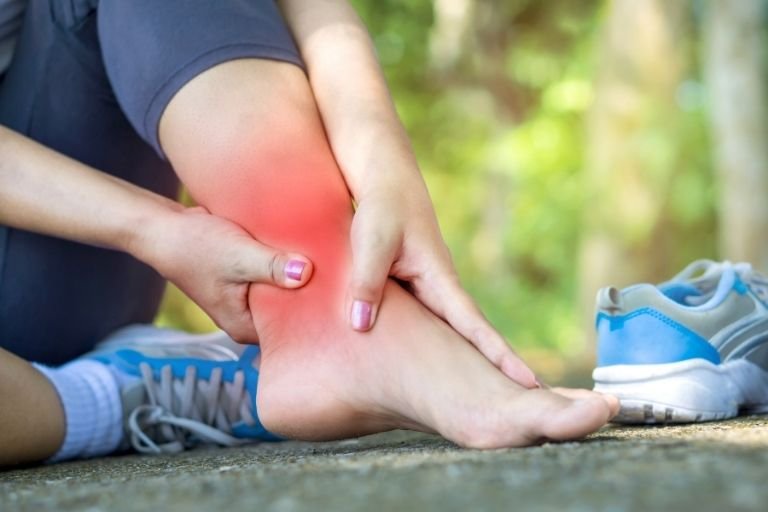- Fitwell Physiotherapy
Piriformis Syndrome

Piriformis syndrome is a condition characterized by pain, tingling, or numbness in the buttocks, which can sometimes radiate down the leg. It occurs when the piriformis muscle, located in the buttocks, compresses or irritates the sciatic nerve, which runs beneath it. This compression can lead to a range of symptoms and discomfort.
Please submit your details below.
Symptoms:
- Pain: Often deep in the buttocks, which may radiate down the back of the leg (resembling sciatica).
- Tingling or numbness: Typically felt along the path of the sciatic nerve, which can extend into the thigh and even to the foot.
- Difficulty sitting: Pain may worsen when sitting for prolonged periods.
- Pain during certain activities: Aggravation of symptoms when climbing stairs, running, or engaging in activities that involve the hip and buttock muscles.
Causes:
- Overuse or injury: Repetitive activities that involve the piriformis muscle, such as running, or direct trauma to the area can lead to muscle spasms and irritation.
- Anatomical variations: Some individuals may have a predisposition to piriformis syndrome due to differences in the shape or position of the muscle and sciatic nerve.
- Muscle imbalances: Weakness or tightness in surrounding muscles can alter the mechanics of the hip joint, potentially contributing to piriformis syndrome.
When to See a Physiotherapist:
It’s advisable to consult a physiotherapist if you experience persistent pain or discomfort in the buttocks or if symptoms interfere with daily activities. A physiotherapist can assess your condition, provide a proper diagnosis, and develop a tailored treatment plan to address your specific needs.
Risks:
Untreated or poorly managed piriformis syndrome can lead to chronic pain and functional limitations. In severe cases, persistent compression of the sciatic nerve may result in muscle weakness or atrophy in the affected leg.
How to Prevent:
- Proper stretching and warm-up: Incorporate stretching exercises for the hips, buttocks, and hamstrings into your routine before engaging in activities that stress these muscles.
- Strengthening exercises: Focus on strengthening the muscles around the hips and pelvis to maintain balance and stability.
- Posture awareness: Practice good posture habits, especially when sitting for extended periods, to reduce pressure on the piriformis muscle and sciatic nerve.
Treatments:
- Physical therapy: A physiotherapist can prescribe specific exercises to stretch and strengthen the muscles surrounding the hip joint, as well as techniques to improve flexibility and mobility.
- Massage therapy: Targeted massage techniques can help alleviate muscle tightness and reduce tension in the piriformis muscle.
- Heat or cold therapy: Applying heat or cold packs to the affected area can provide temporary relief from pain and inflammation.
- Medications: Nonsteroidal anti-inflammatory drugs (NSAIDs) or muscle relaxants may be recommended to alleviate pain and discomfort.
- Injections: In some cases, corticosteroid injections may be administered directly into the piriformis muscle to reduce inflammation and relieve symptoms.
- Surgery: Surgery is typically considered as a last resort for severe cases that do not respond to conservative treatments. Surgical interventions aim to release the piriformis muscle or decompress the sciatic nerve.
Managing piriformis syndrome often involves a combination of these treatments, tailored to the individual’s specific needs and response to therapy. Additionally, adopting healthy lifestyle habits, such as maintaining a balanced exercise routine and practicing good posture, can help prevent recurrence of symptoms.
Frequently Asked Questions
Related Conditions
How Fitwell Physiotherapy Can Help?
Dr. Richa’s Fitwell physiotherapy has an extensive team of physiotherapists all within their own specialist areas of physiotherapy. Whatever your condition, we guarantee that we will have the best physiotherapist for you. We assess, diagnose, plan, cure and care for you.
Fitwell Physiotherapy Clinic, Pune provides you best physiotherapy treatment in Kharadi, pune. We also serve Chandan Nagar, Vadgaon Sheri, Keshav Nagar, Wagholi & nearby Areas in Pune. We are experts in treating Neck Pain, Hand Pain, Back Pain, Lower Back Pain, Knee Pain, Stiff Neck, Sciatica, Arthritis, Stroke Paralysis & Post Surgical Rehab.
We provide Specialized physiotherapy treatments in Sports Injuries, Pre and post Surgery, Neurologic, Pediatric, Chronic Pain/Fatigue, Rheumatology, Women’s Health, Men’s Health, Ergonomics, Vestibular, Amputees & all sort of Pain treatment and lifestyle conditions.

































































































